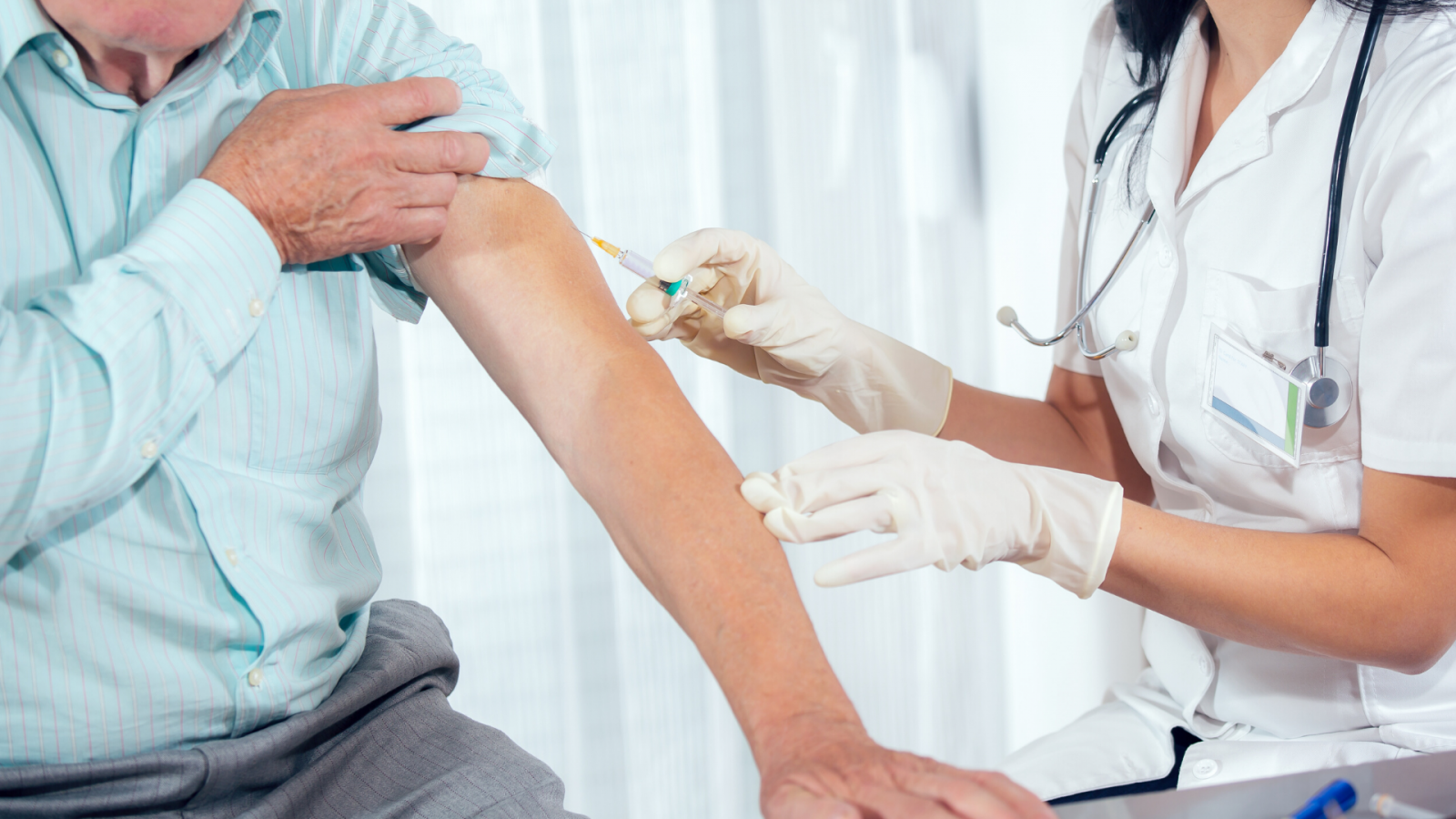Hormone therapy for metastatic prostate cancer

On this page:
Hormone therapy is the main treatment for metastatic prostate cancer. Most men with metastatic prostate cancer will stay on hormone therapy. Hormone therapy aims to control the cancer and improve any symptoms such as poor urine flow or bone pain. Hormone therapy can work well for many years as a treatment for metastatic cancer
Hormone therapy can be used alone or with other treatments.
How does hormone therapy work?
The male hormone testosterone can help prostate cancer cells to grow and spread.
- Testosterone is a hormone
- Hormones control how normal cells grow and work.
- Testosterone is produced mainly in the testes. Small amounts are also produced in the adrenal gland.
- Hormone therapy is a treatment designed to stop the cancer cells getting the testosterone (androgen) they need to grow.
Hormone therapy can slow the growth of metastatic prostate cancer by:
+ Interfering with the production of testosterone
+ Stopping the testosterone from getting to the prostate cancer cells
Another name for hormone therapy is androgen deprivation therapy (ADT). Androgens are male hormones, so androgen deprivation means depriving the cancer cells of the male hormones that help them to grow.
How is hormone therapy given?
All hormone therapies aim to prevent male hormones from helping the cancer to grow, but the different drugs work in different ways. There are 2 main types:
■ Injections to help stop your body making testosterone
■ Tablets to stop testosterone being produced or to block the effect of testosterone so it doesn’t help the prostate cancer cells to grow
Injections
Some drugs work by stopping male hormones being made in your testicles. These drugs are injected under your skin or into a muscle. Examples include goserelin (Zoladex®), leuprorelin (Prostap®), triptorelin (Decapeptyl®), leuprorelin acetate (Eligard®) and degarelix (Firmagon®).
Injections can be given once a month or every 3, 6 or 12 months. The amount of hormone therapy you get is the same, however often you have the injections. This is because some of the injections are ‘slow release’ and give you the medication slowly over a longer period of time. This might save you from having to make more trips to your GP to have the injection.
You might find that your testicles become smaller in size once you have been on hormone therapy injections for a while. Read more about hormone therapy side-effects.
Tablets
Some drugs can block testosterone from entering prostate cancer cells. This prevents testosterone from helping the cancer cells to grow. These drugs are called anti-androgens and are given as tablets that you take at home. For example, enzalutamide (Xtandi®) and bicalutamide (Casodex®).
Other tablets help to stop the production of testosterone in your body. For example, abiraterone (Zytiga®). You may have to take a steroid tablet with some treatments. Your doctor will advise you on this.
Injections and tablets together
Sometimes a combination of the injections and tablets may be used. This is known as combination therapy or complete androgen blockade (CAB) or maximum androgen blockade (MAB).
Combination therapy prevents testosterone being made in your testicles and also blocks the small amount of testosterone that is made by your adrenal glands from working on prostate cancer cells.
When you start injection hormone therapy, you will probably be asked to take anti-androgen tablets for a week or two before your first injection. This is because with most hormone therapy drugs, your body’s first response to the injection is to try to make more testosterone. This could make your cancer grow more quickly and is known as ‘tumour flare’. The tablets block the effect of the testosterone and stop this from happening.
Will I get side-effects?
Different hormone therapy drugs have different side-effects, and reactions to drugs vary from person to person. The common side-effects of hormone therapy include:
■ Change in sexual function
■ Hot flushes
■ Weight gain
■ Fatigue
■ Mood changes
■ Breast swelling and tenderness
■ Osteoporosis or bone thinning
Ask your doctor or nurse about any side-effects you may get from the drug you have been prescribed. You may be given steroids to help with side-effects from some hormone therapy drugs. Read more about hormone therapy side-effects and ways to cope.
How will I know if it’s working?
How will I know my hormone therapy is working?
While you are on hormone therapy you will have regular check-ups, including regular PSA tests. Hormone therapy usually controls prostate cancer growth for many months or years. It is hard for doctors to predict for how long it will work because it depends on a number of factors. For example, how much cancer is present and the grade of your cancer.
PSA level
Your PSA level usually falls when you start hormone therapy. If your PSA level goes up on a few occasions, it may be a sign that your hormone therapy is not keeping the cancer under control as well as it had been. If this happens, your doctor will discuss which treatment options are open to you. For example, he or she may give you extra treatments or try a new type of treatment.
Testosterone level
Your doctor may test the level of testosterone in your body, to check the hormone therapy is adequately blocking its production.
If your PSA level goes up on a few occasions, it may be a sign that your hormone therapy is not keeping the cancer under control as well as it had been. This is called becoming castrate resistant. If this happens, your doctor will discuss which treatment options are open to you. For example, he or she may give you extra treatments or try a new type of treatment.
For more information
Phone
1800 200 700




